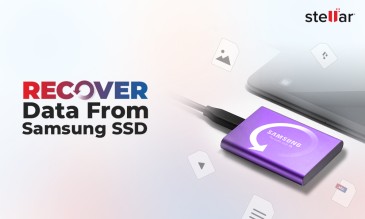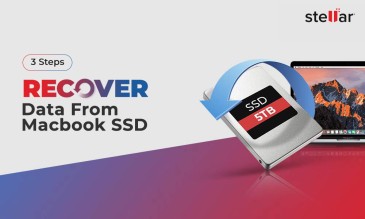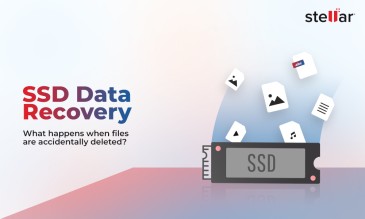Solid State Drives (SSDs) are non-magnetic storage devices that use integrated circuit assemblies to store data. Instead of physical spinning disks and movable read-write heads, which are common components in hard drives, SSDs comprise self-compressed
flash memory chips.
The 2.5 inch SSD, which is the most common type, is physically similar to the mechanical hard drive. This makes it simpler to fit the SSD in the hard drive’s bay in computers and laptops in case of system upgrades. The M.2 SSDs go into the slots on the motherboard.
In the past, SSDs were used only by professionals who needed high-speed computing. But today, they have become commonplace. Most high-end laptops come with an SSD.
Much like USB memory sticks, SSDs store information on chips and have no movable parts like the mechanical arm with a read/write head in the case of hard drives. So, SSDs are compact as compared to HDDs. Also, SSDs are around 30% faster
than HDDs. Furthermore, there is a lower risk of physical damage and related data loss. However, the data loss risk associated with SSD due to other reasons cannot be ignored.
We have discussed the features and types of SSDs in a former blog titled Solid State Drive - The Future of Data Storage. You can visit the blog for
detailed information about SSDs.
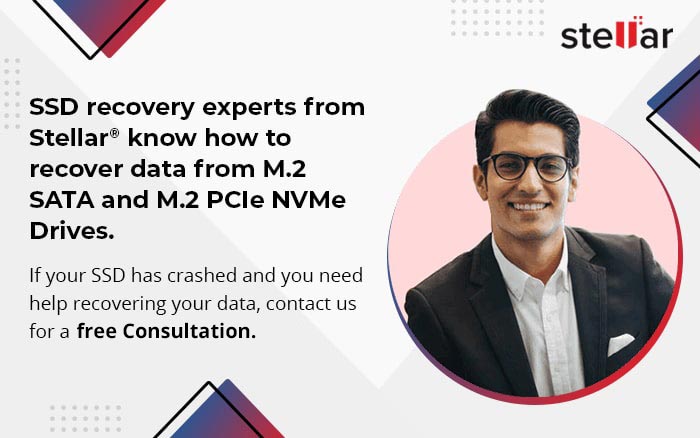
Causes of Data Loss in SSDs
An SSD may malfunction because of heat, firmware failure, and operational misuse, among other causes. An SSD failure could be either of these two scenarios:
- The data present on the drive is either corrupted and becomes inacccessible, or is removed from the device.
- The device doesn’t allow writing more data.
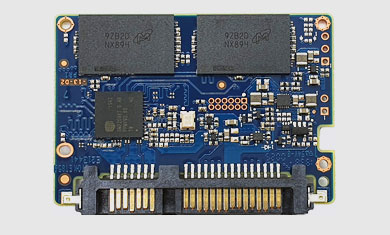
The second event doesn’t cause data loss because no file is written. However, the first event can have critical consequences.
The most prominent causes of data loss in solid-state drives include:
- Accidental deletion of data
- Unintended formatting of the drive
- Power surges that cause SSD malfunction.
- Bad blocks, which are the SSD equivalent of bad sectors in HDDs.
- SSD controller failure.
- Firmware damage caused by bugs.
- The SSD write cycle or Program/Erase (P/E) cycles get exhausted.
- Manufacturing defects in NAND chips.
- Failure of one NAND flash chip on the SSD can lead to data being inaccessible on that chip. It can also cause the failure of other NAND flash chips, ultimately causing the failure of the entire SSD.
- Overheating that is caused by high-speed transistors.
Additional Reading: Some Common Warning Signs of SSD Failure
Signs That Your SSD Crashing: Hints Of Possible Data Loss
The data loss risks associated with SSDs can be identified if you can understand the signs of SSD failure.
Organizations and individuals should act proactively on these signs. Early remedial action makes it possible to fix the SSD and avoid loss of data. Moreover, regular data backups reduce the impact of irredeemable damage to your SSDs.
Unlike Hard Disk Drives, SSDs don’t make peculiar sounds when they crash. This makes it difficult to predict an imminent device failure. However, if the users remain vigilant enough, possible failures can be detected.
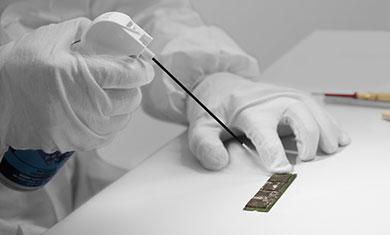
Some of the tell-tale signs that your SSD is on the verge of crashing, which will be followed by data loss, are listed below.
- In case it takes unusually long to read or save a file and the process still fails. The system showing an error in reading and saving files also indicates bad blocks problem.
- Bad blocks also hinder file writing. Sometimes the problem is resolved automatically. Or files can be saved on other locations or on cloud storage to allow continued access.
- The PC or file systems need repair. (Though this can also be a result of the device not being shut down properly.)
- Active applications freeze and crash.
- Errors while moving larger files.
- When the device runs into errors while booting, but runs fine if you press the restart button a couple of times.
- The device becomes read-only, i.e., you can open and read the files that are already on the device, but not add new ones.
Reducing The Risk Of Data Loss
SSDs usually have a long lifespan. But crashes are possible due to hardware, software, malware issues.
Some of the causes of data loss in SSDs are outside the control of the user.
However, there are certain steps for reducing the risk of data loss. If you maintain good SSD health, it reduces the risk of device failure.
Refer to the Preserving Your SSD Health section in our detailed write-up about SSD basics. The guide talks about ways to reduce the risk of data loss associated with SSDs.
Complexity in SSD Data Recovery
Just like any other device, SSDs also have certain options for data recovery. However, they are often more complicated and strenuous.
In a previously published post, we discussed the complexity of SSD drive recovery.
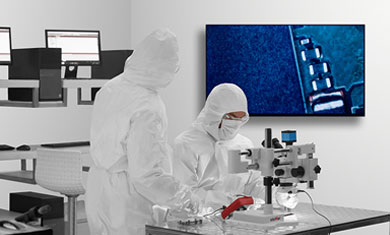
The diverse challenges in the ways of SSD data recovery are enlisted as follows:
- SSDs have complex data structures that differ depending on the manufacturer.
- Address line complexity
- Memory chip density
- Variations in encoding and encryption
- Error correction of code variables.
Additional Reading: SSD vs HDD
Data Recovery Options For SSDs
In cases of accidental data deletion and unintentional drive formatting, data can be recovered from the crashed SSD by using recovery software. Software solutions work when a particular file or folder is lost because of logical failures like deletion or unintentional formatting of certain partitions on the SSD.
For more complex cases, getting professional data recovery services with data recovery experts might be required. For example, data lost due to the failure of multiple flash chips or the SSD itself can be recovered only by experts.
You get only one chance to recover your precious data; so choose wisely.
In case of data loss caused by SSD failure, you can act on the reference of our data recovery guide. If that doesn’t work or the situation is worse, contact experts.
Recover Your Data From A Dead SSD
When seeking data recovery services for your dead SSD, it's imperative to choose a highly skilled professional expert who can provide the following benefits:
- 100% Data Privacy: Opt for an ISO 9001-27001 certified organization that prioritizes data security and maintains strict adherence to privacy protocols.
- 100% Convenience and Peace of Mind: Look for transparency and robust customer support as foundational pillars of the service. Trust in a brand that has earned the confidence of numerous clients worldwide.
- 100% Service Effectiveness: Ensure that the chosen expert possesses suitable infrastructure, including state-of-the-art data recovery labs and technically proficient teams. Additionally, dedicated service managers should guarantee prompt service and quality assurance.
- 30 Years of Experience: Seek out a professional with a minimum of 30 years of experience in the data recovery field, providing reassurance of their expertise and capability in handling complex SSD recovery scenarios.
By selecting a seasoned professional who embodies these qualities, you can have confidence in recovering your data from a dead SSD effectively and securely.
Case Study: Expert SSD Solution by Stellar Data Recovery
Client: Insurance Company
Introduction: Stellar Data Recovery, renowned for its expertise in retrieving critical data from various storage mediums, encountered a challenging
case involving a 512 GB SSD with inaccessible data and corrupt internal structure. This case study delves into the challenges faced, strategies employed, and successful outcomes achieved through meticulous analysis and
technical prowess.
Client's Challenge: The client presented a perplexing scenario wherein the SSD's data was inaccessible, despite being detected by the system. Key pointers indicated issues with detection, a 512 GB SSD configuration,
and the presence of official MS Office files. Moreover, the internal structure was found to be corrupt, complicating the data recovery process.
Data Recovery Process: Our embarked on a comprehensive analysis, beginning with understanding the intricacies of the SSD's condition. Initial assessments revealed encryption via BitLocker, prompting
the acquisition of the BitLocker key from the client. Despite entering the correct key, the drive remained inaccessible. Undeterred, Stellar's experts opted for a clone of the SSD, a pivotal breakthrough that enabled access to the drive
and subsequent retrieval of critical data.
Challenges & Breakthroughs: The primary challenge revolved around the drive's inaccessibility and internal structural corruption.
However, through meticulous analysis and strategic cloning, Stellar overcame these hurdles, ultimately accessing the client's required data in a functional state. The breakthrough moment occurred upon successful cloning, leading to
the recovery of valuable information in directory format, thereby mitigating the client's concerns and ensuring data integrity.
**Feedback: Following the successful recovery of crucial data, the client expressed utmost satisfaction with Stellar. Delighted with the swift resolution and professionalism exhibited throughout the process, the client acknowledged the expertise and dedication demonstrated by the Stellar team.**
Conclusion
In conclusion, Stellar showcased its expertise in overcoming complex SSD data loss challenges, ensuring the successful retrieval of critical information for the insurance company client. Through meticulous analysis and strategic cloning, Stellar's professional team navigated through inaccessible data and internal structural corruption, ultimately delivering a satisfying resolution. It's worth noting that Stellar Data Recovery extends its services not only across major branches like Vashi, Mumbai, Pune, Noida, Hyderabad, Kochi, Delhi, Gurgaon, Chennai, Chandigarh, Coimbatore, Bangalore, Ahmedabad and Kolkata but also through 35 partner branches, including locations such as Goa, Bihar, Odisha, Jamshedpur, Chattisgarah, Andhra Pradesh, Gujarat, Kerala, Maharashtra, Rajastan, Punjab, West Bengal, Aasam, Madhya Pradesh, Uttarajhand, Tamil Nadu, Sikkim and Uttar Pradesh
About The Author

Online Marketing Expert & Content Writer






